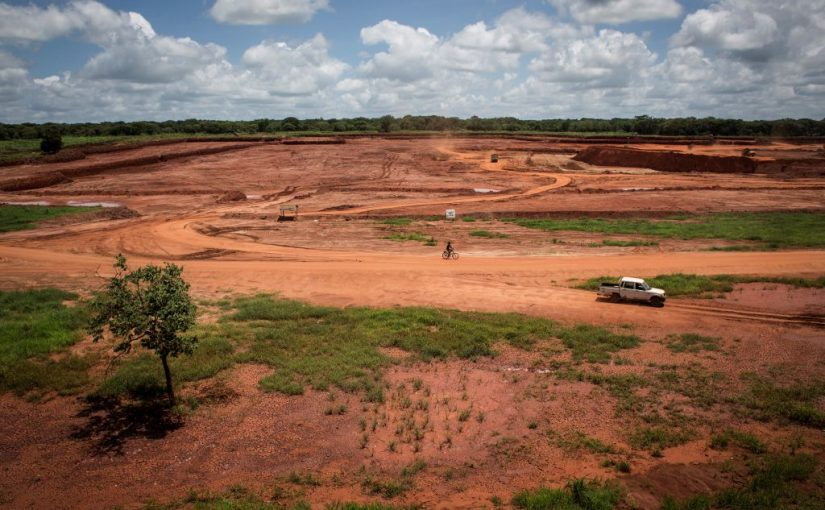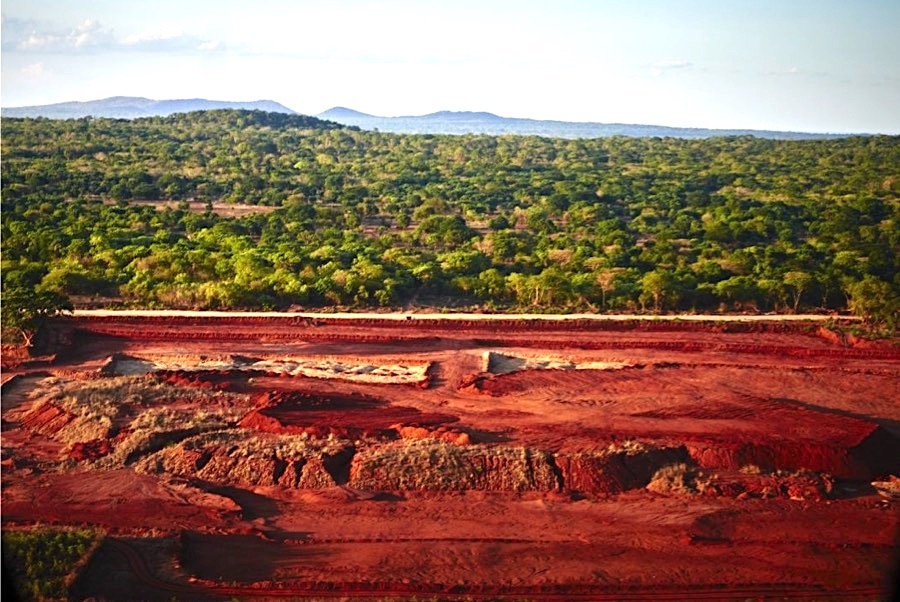The Montepuez ruby mine in Mozambique, operated by Gemfields Group Ltd., has recently found itself at the center of turmoil and unrest. On Sunday, a crowd of approximately 300 people invaded the mine site, sparked by a disinformation campaign alleging that the company had opened its doors for unrestricted mining.
This incident, which resulted in police intervention and injuries, reflects broader issues of local disenfranchisement, human rights, and political tensions in Mozambique. This blog explores the recent storming of the Montepuez ruby mine, the underlying causes of the unrest, and the implications for the local community and the gem industry.
The Incident at Montepuez Ruby Mine
The Montepuez ruby mine, located in northeastern Mozambique, is a key player in the global ruby market, accounting for about half of the world’s ruby supply. The mine’s significance is not just economic but also social, as it operates in one of the poorest regions of the country.
On the day of the invasion, Gemfields’ executive officer, Sean Gilbertson, reported that around 300 individuals breached the mine’s security, spurred by misinformation spread by ruby-smuggling syndicates. The situation escalated quickly, leading to a confrontation with police, during which two individuals were shot and injured.
Read : Mozambique: A Land of Natural Wonders and Cultural Richness
In a follow-up event, the crowd swelled to about 500 people near the mine as locals aimed to gain access. Gilbertson emphasized that the rumors of the mine being open for public mining were entirely fabricated. The spread of this disinformation campaign underscores the ongoing challenges faced by Gemfields in maintaining security and trust within the local community.
Read : Global Poverty Watch : top 10 poorest countries in the world in 2024
As tensions escalated, the company’s share prices fell by 2.5% in Johannesburg, reflecting investor concerns over the ongoing unrest. The Montepuez ruby mine has faced repeated incursions over the years, revealing a pattern of conflict between local communities, artisanal miners, and large-scale mining operations. The mine’s history includes allegations of human rights abuses, with Gemfields having reached a settlement in 2019, although it did not admit liability.

The escalating aggression exhibited by the crowd and the subsequent police response highlight the delicate balance between ensuring security at the mining site and respecting the rights of local populations. The unrest is not merely a response to mining practices; it is symptomatic of deeper socio-economic issues and a growing sense of frustration among local communities who feel excluded from the benefits of the resource extraction occurring in their region.
Disinformation and Ruby Smuggling Syndicates
The disinformation campaign that fueled the storming of the Montepuez ruby mine serves as a stark reminder of the influence of ruby-smuggling syndicates operating in Mozambique. These syndicates thrive on chaos and misinformation, often exploiting the vulnerabilities of local populations who may not fully understand the mining regulations or their rights. By promoting false narratives, these groups aim to create discord between mining companies and local communities, often inciting unrest to further their own interests.
The message disseminated by these syndicates—that the mine was open for mining by anyone for 24 hours—was a significant distortion of reality. Such claims can easily ignite frustrations among local communities, who may already feel marginalized by the presence of foreign companies operating in their regions. The response to the misinformation campaign illustrates how quickly tensions can escalate when the local population perceives that their access to resources is being undermined.
This incident also brings to light the broader context of artisanal mining in Mozambique. Many locals engage in small-scale mining as a means of survival, but without proper regulation and permits, they often face legal repercussions and conflicts with large mining companies. Opposition leader Venâncio Mondlane has voiced the concerns of many locals, arguing that foreign companies monopolize the resources, leaving little benefit for the communities that live in proximity to these valuable mines.

Mondlane’s call for street protests following the violent attack on his legal advisor highlights the rising political tensions in Mozambique, particularly after the general election held on October 9. With observer organizations questioning the credibility of the electoral process, the unrest around the ruby mine may also be a reflection of broader dissatisfaction with governance and representation in the country.
Implications for the Local Community and the Gem Industry
The events surrounding the Montepuez ruby mine have significant implications for both the local community and the broader gem industry. For the community, the storming of the mine and the subsequent police response highlight the urgent need for dialogue and understanding between mining companies and local populations. Building trust is essential to mitigate the tensions that can lead to violence and instability.
Gemfields, in its statement following the incident, emphasized that its security personnel, including police officers, undergo mandatory human rights training. This commitment to human rights is critical in fostering a more harmonious relationship with the local community. However, the effectiveness of such training will depend on the company’s willingness to engage with local leaders and address the underlying grievances that fuel unrest.
For the gem industry, incidents like the one at the Montepuez ruby mine can have far-reaching effects on market dynamics and consumer perceptions. Buyers are increasingly concerned about the ethical sourcing of gemstones and the human rights implications of mining operations.
The rise of consumer awareness regarding ethical sourcing means that companies must prioritize transparency and corporate responsibility to maintain their reputations and market positions.

Additionally, the situation in Mozambique serves as a cautionary tale for other countries rich in natural resources. It highlights the importance of ensuring that local communities benefit from resource extraction. Failure to do so can result in conflict, social unrest, and damage to a company’s reputation, ultimately affecting the sustainability of operations.
The storming of the Montepuez ruby mine in Mozambique underscores the complex interplay between mining operations, local communities, and political dynamics. The disinformation campaign that sparked the unrest reflects broader socio-economic grievances and the challenges faced by communities in accessing the benefits of their natural resources. Moving forward, it is imperative for both mining companies and governments to engage constructively with local populations, ensuring that their voices are heard and their rights respected.
let’s enjoy few years on earth with peace and happiness….✍🏼🙏

